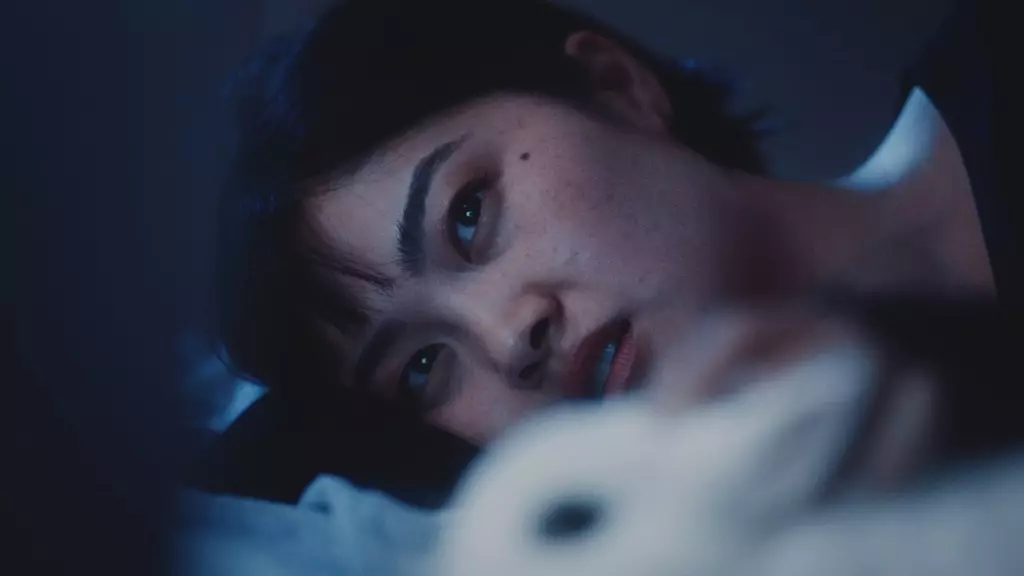Katarina Zhu’s debut feature film, Bunnylovr, delves into the intricate tapestry of modern relationships, identity, and the everlasting quest for self-acceptance. The film centers on Becca, portrayed by Zhu herself, a Chinese American woman in her twenties attempting to carve out a life for herself amidst the chaotic backdrop of New York City. As a cam girl navigating this fast-paced urban landscape, Becca embodies the struggles faced by many young adults today, particularly those grappling with familial issues, societal expectations, and the desire for genuine connection.
Bunnylovr is more than just a tale of a young adult trying to make sense of her life; it’s a nuanced examination of the many roles women occupy in relationships, often at the sacrifice of their own emotional well-being. Becca’s journey introduces audiences to a world where she is constantly fetishized or objectified, leading to a profound exploration of the negative implications of such dynamics. The film’s narrative cleverly intertwines these challenges through various interactions with characters in Becca’s life, from her estranged father to her seemingly supportive best friend, Bella, played by Rachel Sennott.
Throughout Bunnylovr, the relationships portrayed are, at times, troublingly reflective of real societal dynamics. William, Becca’s estranged father, epitomizes unresolved familial conflict. Becca’s role as his lucky charm in underground card games emphasizes her complex relationship with a man whose presence has been largely absent from her life. These moments highlight how parental figures can impact one’s self-esteem and decisions, even when they haven’t been physically present.
On the surface, Bella appears to be a nurturing bearer of the “feminist” label, but her artistic processes often leave Becca feeling exploited, rather than supported. This dynamic throws light on the fine line between artistic expression and emotional violation and exemplifies how friends can unintentionally perpetuate feelings of inadequacy or harm while acting under the guise of creativity.
Central to the film’s greater narrative is Milk, the bunny sent to Becca by a persistent cam client named John. This peculiar gift serves as a poignant metaphor for Becca’s journey toward self-care and empowerment. Initially resistant, Becca’s eventual bond with Milk symbolizes her coming to terms with her conflicted feelings about companionship, agency, and love. The companionship of Milk offers her a form of grounding, an accessible means to express her nurturing side, which has been stifled by the transactional and often toxic relationships surrounding her.
In her interactions with John, Becca grapples with a real power imbalance, exposing how digital relationships can blur the lines between real connection and commodification. The film does not shy from showcasing these moments of intimacy juxtaposed with discomfort, allowing audiences to sit with Becca’s struggles without offering simple binaries of good and bad.
As Becca navigates her chaotic existence, the journey depicted in Bunnylovr may resonate deeply with viewers who find themselves entangled in the noise of modern life. Her evolution is marked by a slow but steady realization: the path to self-acceptance is fraught with challenges, and often means severing ties with toxic influences. The concluding moments of the film suggest that finding peace requires confronting one’s past, embracing the positive aspects of life, and letting go of relationships that no longer serve one’s well-being.
Bunnylovr is a poignant portrayal of a drifting people-pleaser’s journey toward self-discovery and fulfillment. It starkly reveals the challenges young adults face in today’s digital age, wherein the quest for intimacy can often lead to feelings of isolation and objectification. Through her lens, Zhu invites audiences to reflect on their own relationships and the importance of prioritizing self-love amidst the complexities of modern society. This film stands as both a cautionary tale and a hopeful assertion that it is never too late to reclaim one’s narrative and embrace personal agency.


Leave a Reply